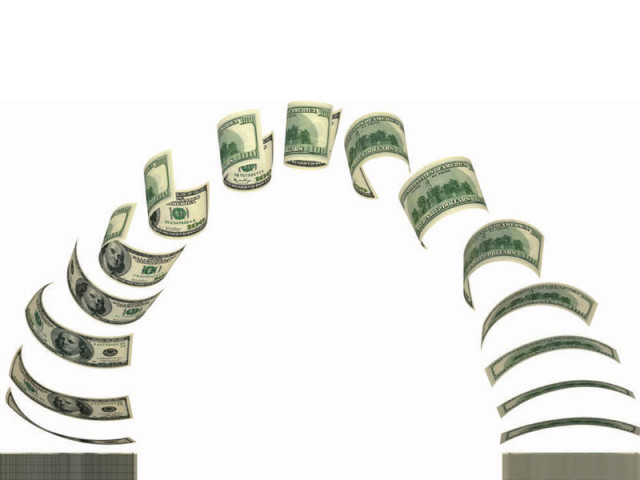Changing platform: Banks concerned over shifting of institutional investments
Ask govt to withdraw the lifting of ban on investments in NSS.

Changing platform: Banks concerned over shifting of institutional investments
Banks have started pressurising the government to reverse its decision that has allowed pension and trust funds to invest in national savings schemes (NSS) – a move aimed at preventing large investments from shifting to savings schemes from banks, which will deprive depositors of good returns.
Banks have ganged up within 72 hours of the Economic Coordination Committee’s announcement that relaxed the ban on all types of institutional investments in NSS imposed in March last year. If the government caves in to pressure from the influential banking sector, it will leave depositors at the mercy of banks, sources say.
Profit rates on NSS are almost double the returns offered by banks. Currently, average profit rate on NSS is 12% against average 7% return banks offer to depositors.
According to an official of the State Bank of Pakistan, the banking sector spread – the difference between deposit and lending rates – stands at 7.5%.
The return on bank deposits is also much lower than the prevailing rate of inflation, recorded at 10.8% in March. This means that the depositors are getting negative returns on their investments – one of the main reasons of low savings rates in the country.
Against every hundred-rupee earnings, Pakistanis save slightly over Rs13 while the ratio in China is 45.5% and in India 29%. Even average savings rate in South Asia is 26%, which is double the rate in Pakistan. Low savings are leading to low investments that in turn restrain economic growth, according to an economic expert working with an international lending agency.
The ECC, in its meeting held on April 6, allowed pension, gratuity, superannuation and provident funds and trusts to invest in NSS by reversing its earlier decision of March 2011 when it had banned all types of institutional investments in NSS.
The ban led to large drawdown on investments in NSS and the money shifted to commercial banks.
In the first nine months (July-March) of the current fiscal year, NSS pooled Rs130 billion, Rs10 billion lower than the deposits received in the corresponding period of previous year, said an official of the Directorate of NSS.
In March 2011, the original proposal was to ban institutional investments except for pension, gratuity, superannuation and provident funds and trusts. But an influential official of the finance ministry and a senior central bank official managed to convince the ministry to ban all types of institutional investments in NSS, said an official of the ministry.
He confirmed that banks have now approached the top brass of the ministry to review the decision.
Despite attempts, representatives of Pakistan Banks Association could not be reached for comments. Though the staff of PBA chairman office promised to respond to the call, but no response was received till the filing of this report.
An official of the Directorate of NSS said the lifting of ban on institutional investments would boost competition as the depositors would now have a wider choice.
NSS deposits stood at Rs2 trillion, the second largest head of domestic debt (29%). Treasury bills make a third of domestic debt at Rs2.4 trillion.
New prize bonds next month
The official said the Directorate of NSS would launch three, six, nine and one-year prize bonds in a bid to provide an alternative and comparatively cheaper source of budget financing to the government.
He said profit rates on these prize bonds, to be launched next month, would be lower than returns on treasury bills. Rates on three, six and 12-month T-bills range from 11.83% to 11.94%.
In February, the Directorate of NSS launched Rs25,000 bond that received overwhelming response, fetching Rs20 billion. This also helped reduce money circulation in March by Rs30 billion compared to a year ago.
Published in The Express Tribune, April 10th, 2012.



















COMMENTS
Comments are moderated and generally will be posted if they are on-topic and not abusive.
For more information, please see our Comments FAQ